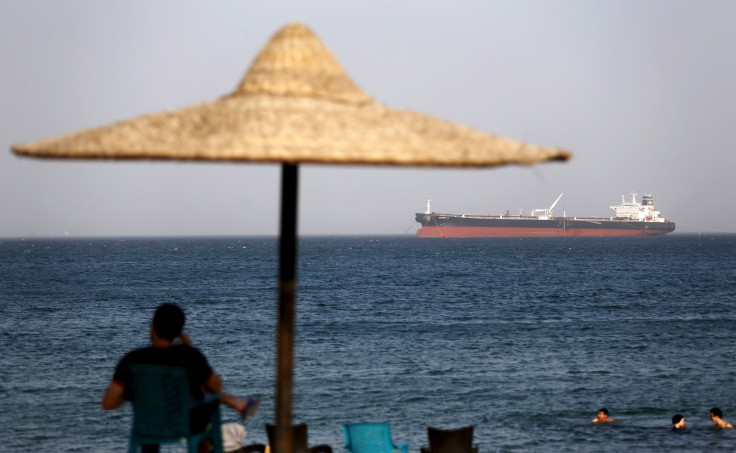Egypt Gas Field Discovery: Finding Could Set Nation On Path To Energy Independence, But When?

It has been hailed as one of the most important discoveries in Egypt in decades. The Italian energy giant Eni announced Sunday the discovery of a "supergiant" gas field in the deep waters off Egypt’s northern coast. It is believed to be the largest gas discovery in the Mediterranean, and possibly one of the largest in the world.
As the country continues to struggle with a gas shortage, frequent power outages and widespread economic instability, there’s a general sentiment in Egypt that the findings are a godsend. Experts have urged caution, noting the actual value of the gas field is not yet known, but said the discovery had potential to reboot the nation’s vanishing energy industry and set the country on a path toward energy independence.
“This is a major find for Egypt which should bridge the country’s gas supply-demand gap and largely put an end to gas and electricity shortages,” Robin Mills, a nonresident fellow for energy at the Brookings Doha Center in Qatar, told International Business Times by email. “At likely sales prices, revenues may be around $5 billion per year, but that’s very approximate.”
If the estimates are accurate, Egypt’s current gross domestic product, set at about $280 billion, could see a 2 percent boost annually, Mills said. And that doesn't take into account extra revenue and the chance for job creation in a revamped energy industry.
Egypt’s gas sector, not unlike the country’s wider economy, has seen considerable turmoil in recent years. The country’s national gas company, EGPC, has been forced to change its focus from exporting natural gas to countries around the region to supplying the domestic market.

“Production was declining, while demand was increasing per year,” Justin Dargin, a Middle East energy expert at the University of Oxford, said in an email interview.
Egyptian President Abdel Fattah el-Sisi, who became president in 2014, has enacted a series of financial reforms international observers say have helped pull the country out of its worst economic crisis in decades. But poverty and unemployment remain high in the politically tumultuous country that is the most populous in the Arab world. About 26.3 percent of Egyptians reportedly live in extreme poverty, and the country's unemployment rate was about 12.3 percent in 2014, the Saudi-owned Alarabiya news outlet reported.
“I believe that the findings are quite significant," Dargin said. "But, it will be several years before the gas is able to be exploited, so regular Egyptians will be unlikely to see the benefits of this gas before the coming decade."
Drilling is expected to begin early next year, but production could take about five years. During that time, Egypt will continue to rely on importing gas from nearby countries, including Israel.
Eni, the Italian multinational oil and gas company behind the discovery, said the fields could hold a potential of 30 trillion cubic feet of gas in an area of 38.6 square miles. That is enough potentially to cover domestic energy consumption for 20 to 30 years, and allow the country to start considering exporting gas again.

The company is likely to develop and operate the field and sell the gas to a state-owned company that will then resell it to domestic users. Due to Egypt’s gas shortage, experts said most of the gas initially would be sold to meet domestic demand. Eni will earn sales revenues to repay its expenses, and the remainder will be split between the company and the government at a predetermined ratio.
But the optimism surrounding the discovery is not without its skeptics. The amount of gas is, at this point, just speculation: The Egyptian government and energy companies in the past have been known to inflate the numbers, said Mohamed El Dahshan, a nonresident fellow for economic development with the Tahrir Institute for Middle East Policy, who is based in Washington and Cairo. The country has also seen its fair share of shady trading in the past, leaving some Egyptians wary as to whether the revenue will actually trickle down.
“Pessimistic observers are waiting for corruption to happen again and for the Egyptian people not to benefit from it,” Dahshan said. “The more optimistic are looking at this as manna from heaven."
“I’m positive about this, and optimistic, but cautiously so,” Dahshan added.
© Copyright IBTimes 2024. All rights reserved.






















